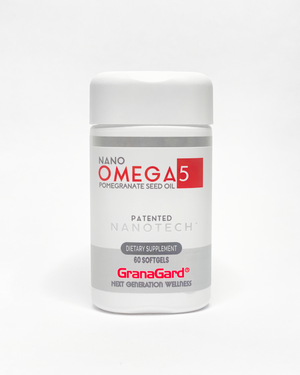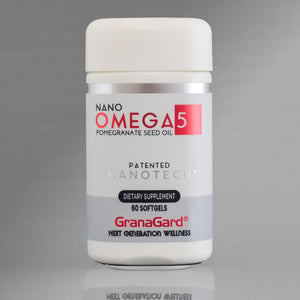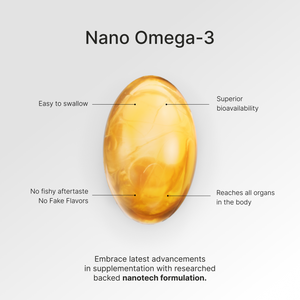90% of all diseases are related to the state of the intestinal microbiota. There must be a balance among the species that inhabit it. When this balance is broken, conditions are created that favor the onset of diseases. Studies have shown that Omega 3 helps restore the balance of the intestinal microbiota.
In each of us live trillions of microorganisms, they are "residing" in different locations defined as Microbiotas, so we have the oral microbiota, the vaginal microbiota; but the most important, where 95% of the microorganisms that accompany us reside, is the intestinal microbiota.
What is the intestinal microbiota

What are the functions of the intestinal microbiota
A healthy and balanced intestinal microbiota performs fundamental functions that contribute to our health, including:
Digestion
Sometimes, our digestive enzymes are insufficient to digest everything we ingest, and this is where the intestinal microbiota helps us extract substances that can be useful to our body.
Production of bioactive compounds
The intestinal microbiota, through its metabolism, helps us obtain compounds that are necessary for our health, such as vitamin K; B group vitamins; and some neurotransmitters.
Elimination of toxic compounds
The intestinal microbiota helps us eliminate some toxic compounds that may have entered through food.
Protection against pathogens
Not all the bacteria that make up the microbiota are beneficial, but those that are help us eliminate and protect us from those that are potentially pathogenic.
Maintenance of the intestinal barrier
Maintaining the intestinal barrier is fundamental to our health; its integrity ensures that toxic and harmful elements cannot cross from inside the intestine into our bloodstream. The integrity of this barrier is maintained by the intestinal microbiota.
Modulation of the immune system
In a way, the intestinal microbiota acts as a kind of trainer for our immune system, teaching it what to act against.
Eubiosis and Dysbiosis
In the intestinal microbiota, bacteria are the main actors. They are integrated into several groups that share general characteristics, which in turn are divided into several strains, integrated by bacteria that share much more similar characteristics. The most important groups of bacteria are Firmicutes and Bacteroidetes. Among the group of Firmicutes, we find the strains Faecalibacterium and Roseburia as the most frequent, and within the group of Bacteroidetes, we would find the strain Bifidobacterium. Among the bacterial groups, there must be a balance known as Eubiosis. For various reasons such as diet, pollutants, the use of antibiotics, and others, this balance is broken, generating a condition known as Dysbiosis. Studies have established that Dysbiosis is present and conditions the appearance of diseases such as non-alcoholic steatohepatitis (Fatty liver), obesity, (Oxidative stress and obesity) chronic inflammatory diseases, asthma, and others. Science has evidenced the correlation between the dysbiosis of the intestinal microbiota and some host metabolic disorders that are associated with a pro-inflammatory composition of the intestinal microbiota. Different bacterial groups modulate the functionality of the immune system, potentially making it pro or anti-inflammatory, thus the intestinal microbiota partly determines the level of resistance to infections and inflammatory diseases. It has also been established that the breakdown of the balance between the bacterial groups Firmicutes and Bacteroidetes (in favor of the former) is associated with various conditions such as overweight and obesity; (Oxidative stress and obesity) insulin resistance, intestinal permeability, inflammatory bowel disease (IBD), and depression. Similarly, it has been observed that the decrease of the Bifidobacteria strain combined with an increase of Enterobacteria leads to the establishment of endotoxemia that causes chronic inflammation associated with some pathological conditions.
Omega 3 and the intestinal microbiota
Studies have shown that Omega 3 (10 Omega 3 body systems organs benefits) play a significant role in the intestinal environment, as they help modulate the composition of the intestinal microbiota. We have seen how the breakdown of the balance between the bacterial groups Firmicutes and Bacteroidetes and between the Bifidobacteria and Enterobacteria strains leads to the appearance of pathological conditions. Now, scientific evidence has shown that Omega 3 (Benefits of Omega 3 for cardiovascular health) can reverse this condition, restoring the Firmicutes/Bacteroidetes balance, also increasing bacterial strains known as Lachnospiraceae, actions that, in addition to being associated with an increase in the production of substances with anti-inflammatory properties such as butyrate, help eliminate risk factors for the development of diseases associated with Dysbiosis. Studies have also shown that Omega 3 has an effect on the increase of Bifidobacteria over Enterobacteria, which would restrict the phenomenon of endotoxemia. In summary, based on the studies conducted, Omega 3 should be considered a great prebiotic (a substance that promotes the development of a healthy microbiota) capable of restoring eubiosis in many pathological conditions.





